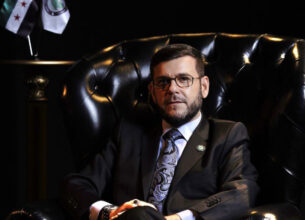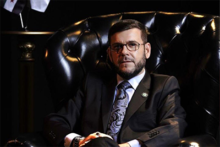Syrian regime’s humanistic split!

After the massacre at Al-Ma’mdani Hospital in Gaza on Tuesday, October 17, 2023, the Syrian regime announced a national mourning and lowered flags in solidarity with the martyrs due to the Israeli targeting.
The hospital has been operating since 1904 and was established by the “Church Mission” society affiliated with the Church of England. Later, between 1954 and 1982, it was managed by the medical mission of the Southern Baptist denomination. Since the 1980s, the Anglican Church in Jerusalem has been running the hospital.
The regime’s stance can be considered humanitarian or Arab nationalist if it wasn’t responsible for the elimination of more than half of the medical sector in Syria! In a UN report from 2021, a series of documented figures were presented detailing the war’s toll in Syria, stating that seventy percent of healthcare workers fled during the conflict years, while over fifty percent of health infrastructure was destroyed or damaged.
It is worth noting the horrific massacre by the Syrian regime’s airstrikes targeting “Al-Quds” hospital in Aleppo on the night of April 27, 2016, resulting in the death of over 40 civilians, including two doctors and four nurses. In 2022, the number of hospitals reached 113 throughout Syria, with 26% of them partially operational and 27% out of service.
Schizophrenia is a severe, chronic mental disorder that affects a person’s thinking, perception, and behavior, making them seem detached from reality. They suffer from delusions, hallucinations, and disordered thinking and behavior, which hinders their ability to perform daily tasks and affects their social relationships.
Nations can also experience what can be described as “political schizophrenia”. This split might occur when there are internal tensions or conflicts. Political schizophrenia can result from many factors, including political corruption where public authority is abused for illegitimate personal gains. This exactly characterizes the Syrian regime! The inconsistency in the Syrian regime’s stance highlights a clear split in its behavior. Despite its calls for human rights and ethics, its actions depict an entirely different image.
The “Syrian Future Movement” here poses a question: Can the Syrian regime condemn the bombing of the hospital in Gaza, despite bombing one hospital after another in Syria? This inconsistency in the Syrian regime’s stance underscores the lack of trust in its role as a protector of human rights or a guarantor of its people’s protection.






